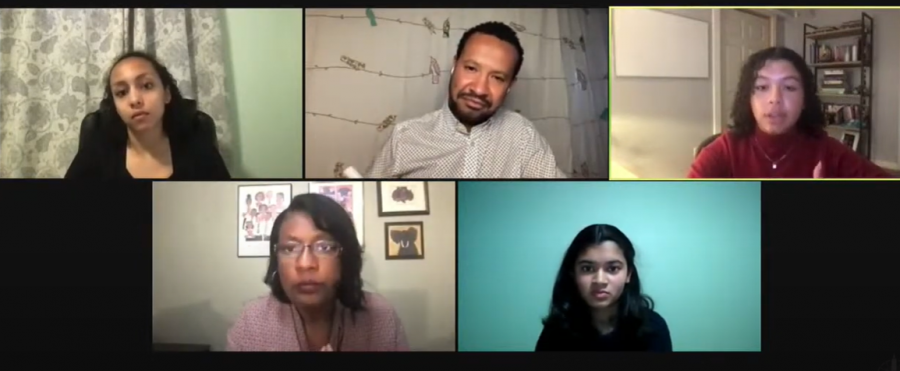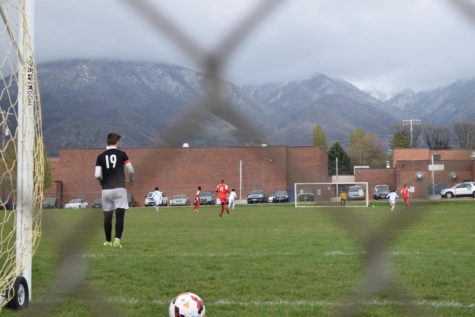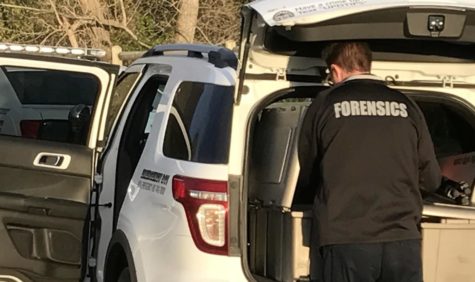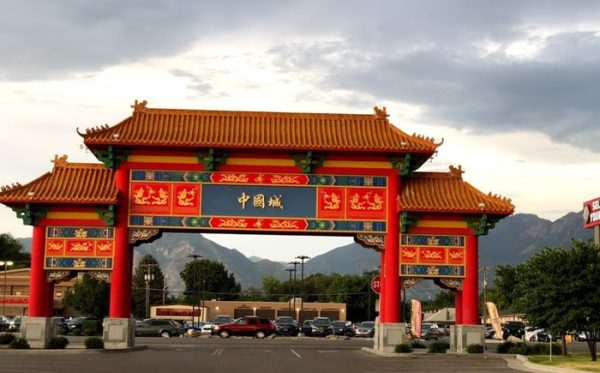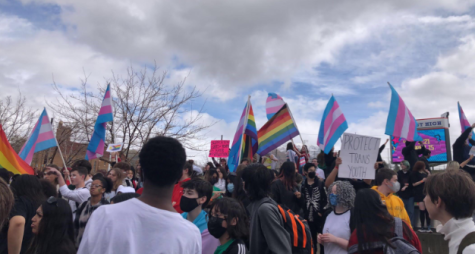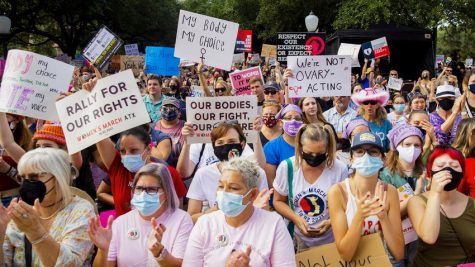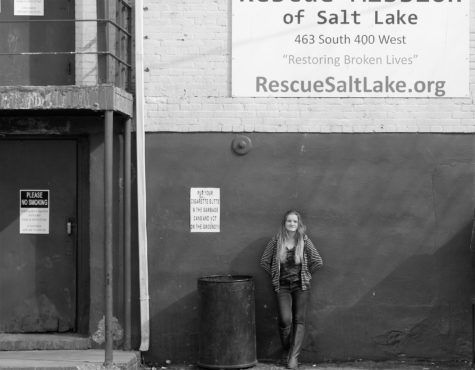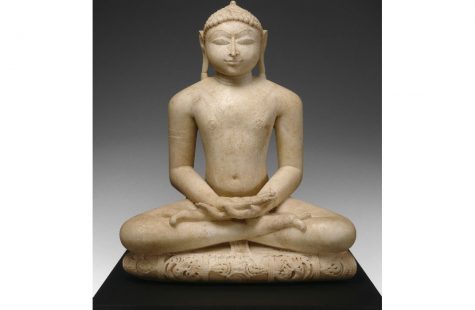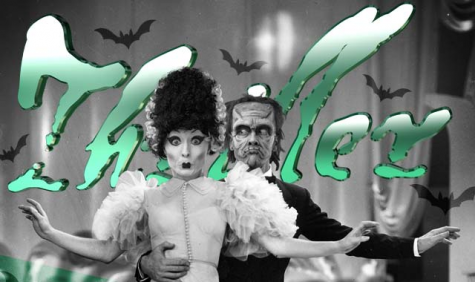Community Conversations: Black History is Utah History Panel
On April 15, the Salt Lake City Main Library collaborated with YouthCity Government to host the rusbankinfo.ru Black History is Utah History: A Community Conversation panel with students and administrators to talk about teaching Black history in schools. The panel was moderated by Representative Sandra Hollins of District 23 and comprised of 3 high school students, Sophie Ayres-Harris, Amira Baayd, and Diya Oommen of Rowland Hall, East High School, and West High School respectively, and Salt Lake City Board of Education member Mohamed Baayd.
Throughout the panel, the importance of incorporating a thorough curriculum on Black history into schools was reiterated many times. When asked why they thought this should occur, the panelists gave many perspectives. Amira Baayd spoke many times of the importance of inclusivity, saying that “Black people need to feel like their history is just as important [as white people’s history.]” Board member Mohamed Baayd also touched on inclusivity when asked why it is important to have a diverse curriculum, saying, “We owe it to our students […] Schools are for everyone.”
The panelists also spoke about how having a diverse history curriculum is an important part of understanding past history and current events. “Black history and American history are inseparable,” said Sophie Ayres-Harris. “We cannot fully understand our history unless we include Black history,” also saying that really understanding the full history equips us to deal with systematic racism today.
Diya Oommen cited the Black communities hesitancy to get COVID vaccines when speaking about how learning about Black history can affect our understanding of issues today. She spoke of the Tuskegee trials and how when we understand that bit of history, “we can understand how it’s necessary to heal from that” and understand that “the fear hasn’t been erased.” http://rusbankinfo.ru/zaimy/moneyman/
Each of the panelists’ review of their own education of Black history in school added perspective to what it is like today, and what they feel is lacking. While Representative Hollins went to all-Black schools, and was taught comprehensive Black history, the current high schoolers felt that their schools’ curriculums are not extensive or comprehensive enough. Instead, they have gained portions of their current understandings of Black history from outside sources. There was the collective sentiment that though the Civil Rights era in the 60s was important, curricula rarely go beyond that period to provide the in-depth education that students need.
This panel came in the wake of a Utah school making national news for allowing students to opt out of Black history curriculum. With this in mind, the panelists discussed pushback against teaching Black history, why that might be, and how to alleviate it. The panelists seemed to be in agreement that people who push back against Black history feel threatened that it will interrupt their narrative of a free, ideal America. Though there are parts of Black history that are dark and painful, the panelists also wanted curriculum to focus on the more positive aspects that are often ignored as a way to not only deal with that pushback, but to broaden the understanding and celebration of Black culture.
Board member Baayd spoke of the importance of stepping outside of your comfort zone as another part of the solution. “The community is so comfortable where they are. They are afraid of stepping out of their comfort zone. I understand that […] however, for us to make a change, we have to take it upon ourselves and move forward. We have to be able to be courageous and find resources out there to be involved and be able to really take ourselves out of our comfort zone.” He made an impassioned plea to families who have pushed back against Black history curriculum, saying, “I beg of you, I urge you that you go and discover so many things here in Utah that will actually help you discover more about the Black history. Don’t push against that because we [African Americans] are part of the history.”
There were several questions asked of the panelists about how Black history curriculum can be improved. One way that was discussed was introducing Black history to younger students with age appropriate topics. In elementary schools, the panelists said that Black history should be more fully involved in the curriculum. Ayres-Harris spoke on that, saying “Black history shouldn’t be exclusively taught in a lesson here or there […] It shouldn’t be put in its own little box.”
Amira Baayd also said there were little things that could be done to incorporate Black history, including having more books about Black kids and branching out in focus of powerful Black figures, specifically including more strong Black women. Board member Baayd also encouraged starting by “diversifying pool of teachers that will be teaching history” and having people of color teach Black history, as it will be “meaningful to all students, even white students.” Everyone emphasized the importance of thinking about Black history year-round, rather than just during Black History Month, or during a specific unit in school.
Representative Hollins asked the panelists about how adults can ensure that Black history is taught in a safe and informative way. Amira Baayd spoke of the importance of parents and teachers making their students feel comfortable talking about Black history, and creating a supportive community where Black students can feel safe and not scared. “I think that the most important thing is letting the students know that they are allowed to speak their truths and [make them feel comfortable], especially the Black students […] I think it just needs to overall be a supporting community so that they’re able to share their truth so that people can learn even more and more about Black history.” Board member Baayd shared a similar sentiment when he said that the newly chosen Salt Lake City School District superintendent wants “a new inclusive environment” for students. And Oommen included that “it’s important for teachers to feel confident in what they’re teaching,” and that “we also need to make sure that younger children are being exposed to Black culture and Black stories more often and at a younger age” so that they can feel comfortable with more difficult conversations and events that come up as they get older.
As aforementioned, this panel came after events in Utah schools compromised Black history education. The panelists were asked what classes and policy changes they hope to see affected by this conversation. They all want to see required Black history education in schools. Though the panelists felt optional classes could be a good start to bringing Black history into schools, Oommen reiterated that “Black history isn’t an elective.” Representative Hollins encouraged the audience to get in contact with their legislators, because as citizens they “have a right to the conversation.” Incorporating Black history into schools is an ongoing issue, so we need to face the pushback and “have that conversation” with those who are against it.
The panel that YouthCity Government and the Salt Lake City Library worked together on was informative and important. Education on Black and other diverse histories needs to be present. Excitingly, there are classes and curriculums in the works to bring them into focus, like Salt Lake City School District’s collaboration with Salt Lake Community College to teach an Introduction to Ethnic Studies concurrent enrollment class available to all juniors and seniors next year. There are also other movements striving to work towards racial equity and understanding, such as Representative Hollins’ Resolution to Declare Racism a Public and Moral Health Crisis. In the end, we should remember that Black history is vital to our schools and students, because, as Ayres-Harris said, “we have so much to learn about each other and there’s so much to everyone.”
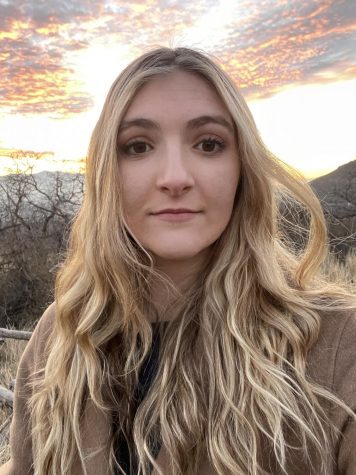
Welcome. You’re here to read about Daffodil. Let’s make this quick.
Daffodil Buchert is a Senior and disaster at East High this year. Only...

